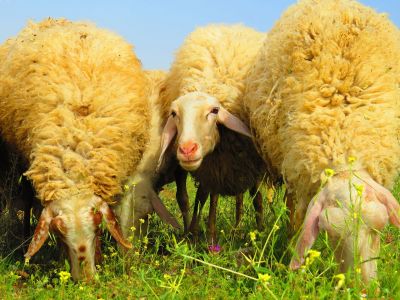Assessing the long-term risk of GM feed

Assaf sheep
By محمد الفلسطيني (Own work) [CC BY-SA 3.0 (http://creativecommons.org/licenses/by-sa/3.0)], via Wikimedia Commons
Researchers are developing tools and guidelines to monitor the long-term health of animals exposed to feed derived from genetically modified (GM) crops.
GM crops grown outside of Europe are often destined for several EU markets, including animal husbandry, for which they are processed into animal feed. While the EU approves of using GM-derived ingredients only if each crop passes vigorous safety assessments, long-term exposure risks on animal health are unknown.
The EU-funded ‘Monitoring of animals for feed-related risks in the long term' (MARLON) project aims to provide guidance for monitoring GM feed-related risks in livestock.
To address any potential links between using GM-derived feed and animal health risks, MARLON is creating inventories of existing data from post-market monitoring initiatives. Researchers are developing a model to improve future monitoring by collating information on, for example, measurable animal health indicators and how to analyse exposure.
Data collected from controlled short-term, long-term and multi-generational feeding trials so far point to no adverse health effects on animals fed GM ingredients. Some effects may even be positive: studies show that insect-resistant GM crops contain lower levels of toxic chemicals produced by fungi that colonise insect-damaged crops.
Underlining potential concerns, however, some studies found traces of undigested GM DNA in animals' stomachs, while others suggest that nutritionally enhanced crops could produce allergy-causing proteins.
These contrasting data highlight the importance of post-market surveillance and monitoring to identify both positive and negative trends in animal health. By providing tools to measure such effects in livestock fed with GM ingredients, MARLON will help inform European regulators in their decision-making process.
published: 2015-04-20

